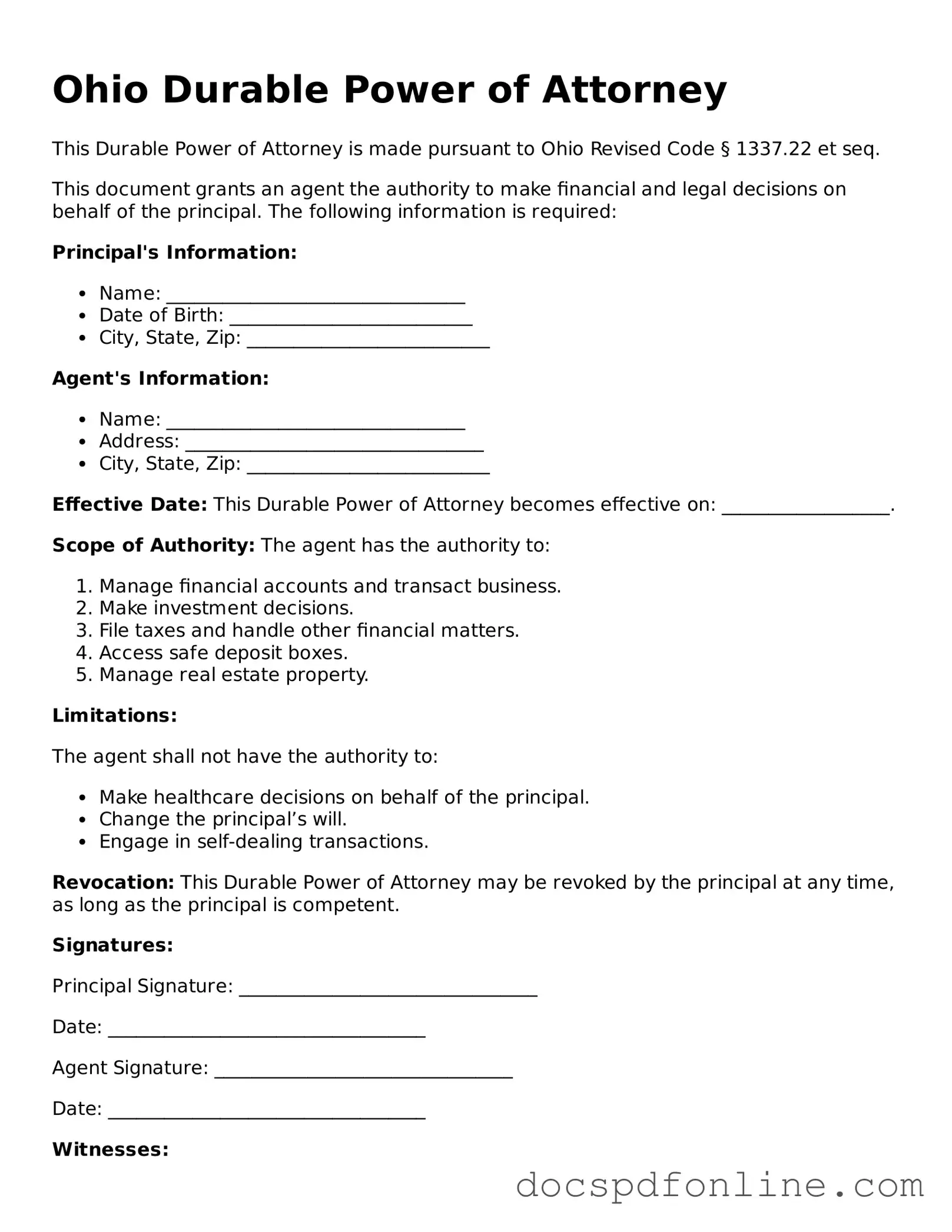Legal Durable Power of Attorney Template for Ohio
A Durable Power of Attorney in Ohio is a legal document that allows an individual, known as the principal, to appoint someone else, called an agent, to make decisions on their behalf when they are unable to do so. This form remains effective even if the principal becomes incapacitated, ensuring that their financial and healthcare matters are managed according to their wishes. Understanding the nuances of this document is essential for anyone considering this important legal tool.
Launch Editor Now

Legal Durable Power of Attorney Template for Ohio
Launch Editor Now
Save time — finish this form fast
Finish Durable Power of Attorney online — edit, save, download made easy.
Launch Editor Now
or
↓ PDF File
